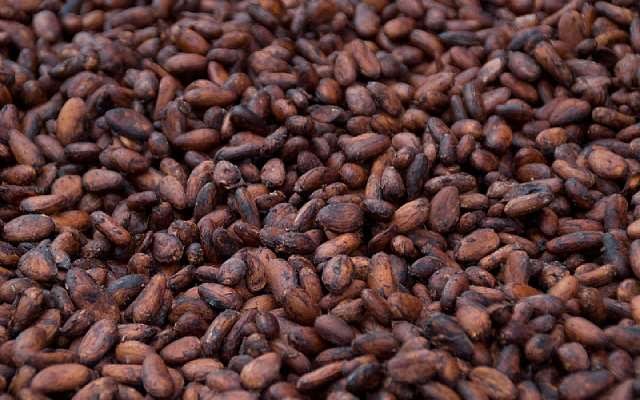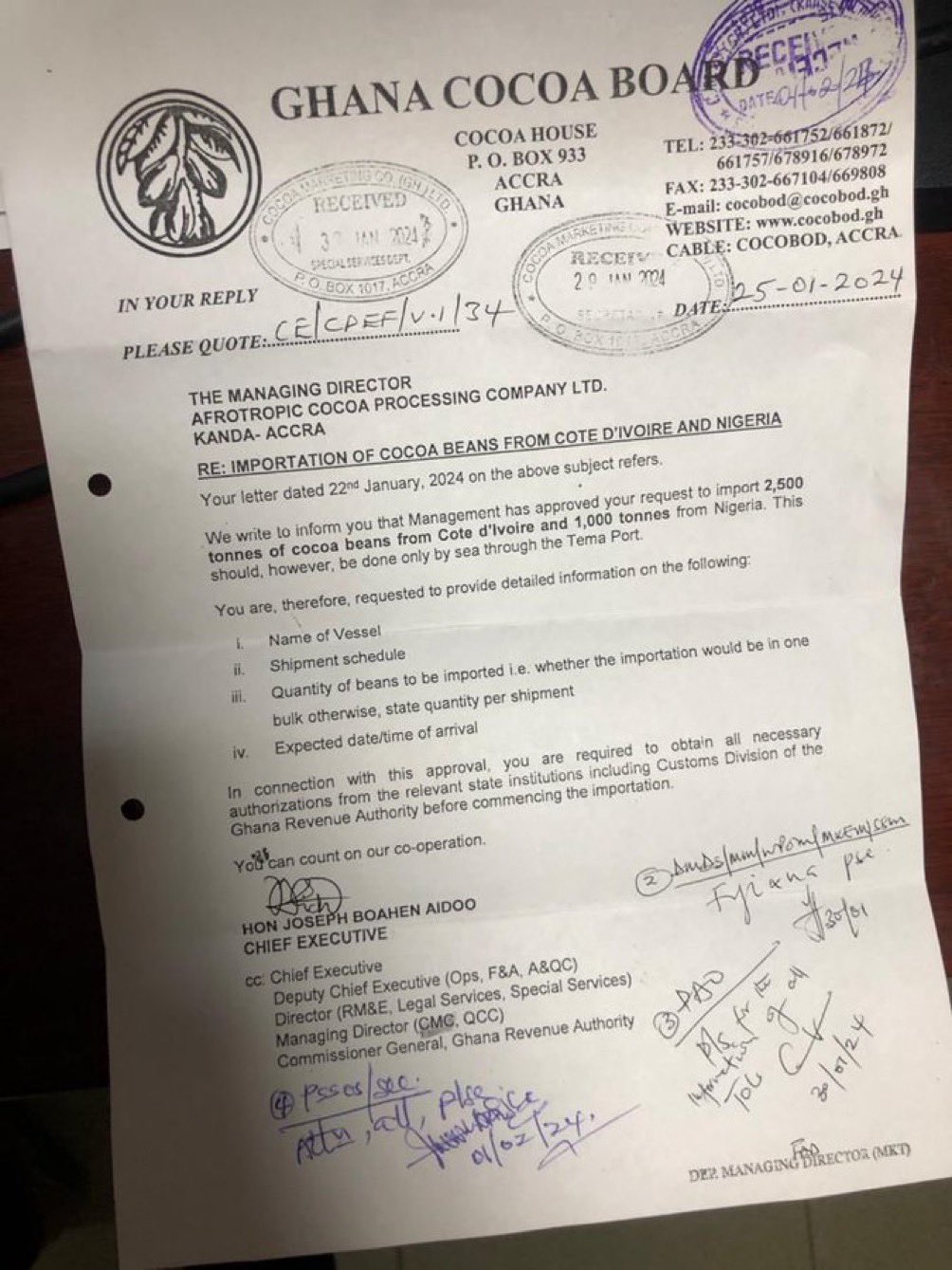
In the ever-changing landscape of cocoa trade, Afrotropic Cocoa Processing Company Limited has received the green light to import a substantial quantity of cocoa beans. A letter dated January 22, 2024, released by the media reveals that the company is set to bring in 2,500 tonnes from Cote d’Ivoire and another 1,000 tonnes from Nigeria. This article aims to shed light on the intricacies of this import approval and its potential implications for the cocoa industry.

The letter, signed by Chief Executive Joseph Boahen Aidoo of COCOBOD, clearly states that Afrotropic’s request for importation has been approved. However, it emphasizes that the importation must exclusively be done by sea, utilizing the Tema Port for the entire process.
Afrotropic Cocoa Processing Company Limited is authorized to bring in a significant volume of cocoa beans, with 2,500 tonnes earmarked from Cote d’Ivoire and an additional 1,000 tonnes from Nigeria. This sizeable importation signals both the company’s ambition and the availability of quality cocoa beans from these two prominent sources.
The approved importation not only highlights Afrotropic’s strategic moves but also holds broader implications for the cocoa industry. It showcases the continued demand for cocoa beans and the importance of reliable sources like Cote d’Ivoire and Nigeria in meeting this demand.
For those interested in the cocoa trade, this development serves as a case study for navigating the complexities of international importation. The requirement for sea transport through the Tema Port underscores the importance of logistics and efficient supply chain management.
Afrotropic Cocoa Processing Company Limited’s recent approval to import cocoa beans is a testament to the dynamic nature of the cocoa industry. Aspiring players in the trade can draw valuable lessons from this case, emphasizing the need for strategic planning, compliance with regulations, and the significance of reliable transport routes. This importation venture contributes not only to Afrotropic’s growth but also to the larger narrative of sustaining the cocoa industry’s vibrancy.
Mr. Aidoo’s assurance of cooperation is notable, yet the decision to import cocoa beans from regional rivals raises concerns, especially for Ghana, the second-largest cocoa producer globally. This move comes amidst challenges such as the decline in production due to illegal mining activities damaging farmlands and cocoa trees, a problem the government has struggled to address effectively in recent years. This decision may have significant implications for Ghana’s cocoa industry and its economy as a whole, warranting careful consideration and potential strategies to mitigate the impact on local producers and communities.







